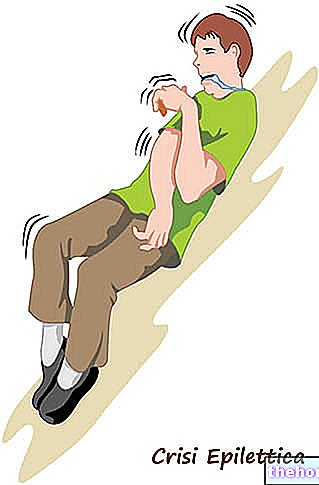
What is Fampyra - fampridine?
Fampyra is a medicine that contains the active substance fampridine. The medicine is available as prolonged-release tablets (10 mg).
What is Fampyra used for - fampridine?
Fampyra is indicated for the improvement of walking in adult multiple sclerosis (MS) patients with walking disabilities.
Multiple sclerosis is an inflammatory disease that affects the nervous system, with a progressive destruction of the protective sheath that lines the nerves.
The medicine can only be obtained with a prescription.
How is Fampyra used - fampridine?
Treatment with Fampyra should only be done under the prescription and supervision of physicians experienced in the management of multiple sclerosis. The recommended dose is one tablet taken orally, twice a day, 12 hours apart. The tablets should be taken on an empty stomach.
Patients should be examined after two weeks of treatment; treatment should be discontinued if no improvement is observed. Treatment should also be discontinued if walking ability worsens or if the patient does not report that they benefit from the treatment.
How does Fampyra work - fampridine?
The muscles of the body contract because they receive electrical impulses that are transmitted through the nervous system. In multiple sclerosis, the transmission of electrical impulses is impaired when the protective sheath that covers the nerves is damaged. This results in muscle weakness, muscle stiffness and difficulty. in walking.
The active substance in Fampyra, fampridine, is a potassium channel blocker. It acts on damaged nerve structures, preventing charged potassium particles from leaving the nerve cells. It is believed that in this way it produces the effect of allowing the electrical impulse to continue to propagate along the nervous system to stimulate the muscle, making walking easier.
How has Fampyra been studied - fampridine?
The effects of Fampyra were first tested in experimental models before being studied in humans. The company also presented data from the scientific literature.
Two major studies were conducted in which Fampyra was compared with placebo (a substance that has no effect on the body) in 540 patients with multiple sclerosis.Patients were treated for 9 or 14 weeks. The main measure of effectiveness was improvements in walking speed along a distance of approximately 7.5 meters. Patients were thought to have responded to treatment if, on at least three out of four occasions, their walking speed was faster. of the maximum speed recorded before the treatment.
What benefit has Fampyra - fampridine shown during the studies?
Fampyra was effective in improving walking speed. In one of the main studies, approximately 35% of patients treated with Fampyra responded to treatment compared with 8% of subjects treated with placebo. The second study showed similar results: 43% of patients in the Fampyra group had responded to treatment compared with 9% of subjects in the placebo group.
What is the risk associated with Fampyra - fampridine?
The most common side effects of Fampyra are predominantly neurological (i.e. detectable in the nervous or brain), namely convulsions, insomnia, anxiety, balance problems, dizziness, paraesthesia (abnormal sensations such as tingling and tingling), tremors, pain headache and asthenia (weakness). The most common side effect reported in clinical trials, affecting approximately 12% of patients, is urinary tract infection. For the full list of side effects reported with Fampyra, see the Package Leaflet.
Fampyra must not be used in people who may be hypersensitive (allergic) to fampridine or any of the other substances. It must not be used with other medicines containing fampridine or with medicines known as 'organic cation transporter 2 inhibitors' such as cimetidine. Fampyra cannot be used in patients who have or have had seizures in the past or in patients with kidney problems.
Why has Fampyra - fampridine been approved?
The CHMP is of the opinion that Fampyra is likely to produce benefits for approximately one third of MS patients with walking disabilities and that such benefits can be identified in these individuals at an early stage of treatment, allowing treatment to be discontinued in the other individuals. The Committee noted that no other treatments are currently authorized to treat the symptoms of multiple sclerosis and that serious side effects with Fampyra are a "rare occurrence. The CHMP therefore concluded that the benefits of Fampyra outweigh its risks in patients. people with walking disabilities and recommended the granting of a marketing authorization for this medicine.
Fampyra has been given "conditional approval." This means that further data are awaited, in particular regarding the drug's long-term effects on other aspects of walking ability. The European Medicines Agency reviews annually new information available and, if necessary, update this summary.
What measures are being taken to ensure the safe use of Fampyra - fampridine?
The company that makes Fampyra will carry out a long-term study on the medicine's efficacy and safety. The study will look at the effects of Fampyra on other aspects of walking besides speed, and will look for new ways to identify responding patients early. to Fampyra, to allow prompt intervention on the management of the treatment.
Other information about Fampyra - fampridine
On 20 July 2011, the European Commission issued a "Marketing Authorization" for Fampyra, valid throughout the European Union.
For more information about Fampyra therapy, read the package leaflet (included with the EPAR) or contact your doctor or pharmacist.
Last update of this summary: 06-2011.
The information on Fampyra - fampridine published on this page may be out of date or incomplete. For a correct use of this information, see the Disclaimer and useful information page.




























